VIPsight - August 2015
COMPANIES
Winterkorn top of the heap
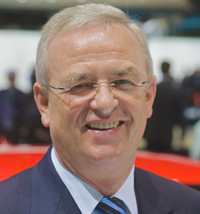 After a two year dip in Euro-remunerations, emoluments paid out to the CEOs of stock market listed companies have begun to rise again. According to a survey conducted by business consultants hkp, the average rise of directors fees in 2014 was 4 percent, or 5.8 million Euros. The average amount of the actual emoluments paid out to the CEOs of the 30 Dax-listed concerns is 5.9 million Euros. Top of the European list is Martin Winterkorn, the highest paid CEO in Europe, followed by the two CEOs of Cie. Financière Richemont of Switzerland, Richard Lepeu and Bernard Fornas.
After a two year dip in Euro-remunerations, emoluments paid out to the CEOs of stock market listed companies have begun to rise again. According to a survey conducted by business consultants hkp, the average rise of directors fees in 2014 was 4 percent, or 5.8 million Euros. The average amount of the actual emoluments paid out to the CEOs of the 30 Dax-listed concerns is 5.9 million Euros. Top of the European list is Martin Winterkorn, the highest paid CEO in Europe, followed by the two CEOs of Cie. Financière Richemont of Switzerland, Richard Lepeu and Bernard Fornas.
The top ten of Dax-listings are:
Martin Winterkorn Volkswagen 15.9 Million
Dieter Zetsche Daimler 14.4 Million
Frank Appel Deutsche Post 9.6 Million
Ulf Schneider Fresenius 9.2 Million
Kurt Bock BASF 7.8 Million
Kasper Rorsted Henkel 7.7 Million
Joe Kaeser Siemens 6.7 Million
Marijn Dekkers Bayer 6.7 Million
Elmar Degenhart Continental 6.2 Million
Anshu Jain DeutscheBank 6.2 Million
K+S takeover stalled
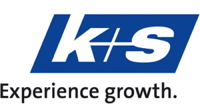 Jochen Tilk CEO of the Potash Corporation of Saskatchewan is continuing in his efforts to get the K+S executive board to sit down to a constructive dialogue on the issue of Potash’s intentions of purchasing it. The Canadians are by no means discouraged by the reluctant stance adopted by the K+S management. As of now, Potash is still undecided whether to table an official purchase offer for the German fertilizer and salts producer. Company sources, however, confirm that Tilk’s preference lies in a non-hostile transaction with his competitors from Kassel. In a recent presentation of quarterly results, German born Tilk highlighted the advantages for both sides which, according to him, would accrue from the two companies joining forces, adding that he wants to maintain sites and jobs. At the beginning of July, the Canadian company with its headquarters in the province of Saskatchewan proposed the deal but K+S CEO Norbert Steiner, was in total opposition to the terms the Canadians were offering, namely 41 Euros per share, which values the company at 7.8 billion Euros excluding indebtedness. Both the executive and Supervisory Boards are of the opinion that the offer is too low. In addition to more money K+S is also looking for commitments to maintain sites and jobs that are more watertight than those set out in a letter to the K+S management. Tilk states he is willing to offer more binding guarantees.
Jochen Tilk CEO of the Potash Corporation of Saskatchewan is continuing in his efforts to get the K+S executive board to sit down to a constructive dialogue on the issue of Potash’s intentions of purchasing it. The Canadians are by no means discouraged by the reluctant stance adopted by the K+S management. As of now, Potash is still undecided whether to table an official purchase offer for the German fertilizer and salts producer. Company sources, however, confirm that Tilk’s preference lies in a non-hostile transaction with his competitors from Kassel. In a recent presentation of quarterly results, German born Tilk highlighted the advantages for both sides which, according to him, would accrue from the two companies joining forces, adding that he wants to maintain sites and jobs. At the beginning of July, the Canadian company with its headquarters in the province of Saskatchewan proposed the deal but K+S CEO Norbert Steiner, was in total opposition to the terms the Canadians were offering, namely 41 Euros per share, which values the company at 7.8 billion Euros excluding indebtedness. Both the executive and Supervisory Boards are of the opinion that the offer is too low. In addition to more money K+S is also looking for commitments to maintain sites and jobs that are more watertight than those set out in a letter to the K+S management. Tilk states he is willing to offer more binding guarantees.
Wilex: improved prospects
If the first half-year figures for biopharm company Wilex AG are anything to go by, they point to a success story in increasing turnover and cutting costs. The first six months – ending November 30 of this financial year – witnessed a 35 percent increase in revenue, to 2.3 million Euros over the corresponding period of the previous year. Approximately 1 million Euros came from liquidating reserves, foreign exchange gains and rent of property.
At the same time, costs were cut to 4.2 million Euros, 30 percent down on the first half-year of 2014, achieved by discontinuing clinical development and cutting costs through restructuring. Research and development accounted for some 46 percent – 1.9 million Euros – and further savings were made by reducing costs for commissioned research and administration. Its status of subsidiary of Heidelberg Pharma, qualified the company for funding for the next three years’ research into an active substance against prostate cancer. According to management funding is guaranteed until mid-2016, secured by an increase in share capital dated March 2015.
Bastei Lübbe Digital: towards the future
Bastei Lübbe AG, the well-known publishing house, increased its turnover last financial term (30.3.) with most of the increase in digital publishing. Good news for investors, the dividend is expected to rise, too.
The prime standard-listed media group posted a 2.5 percent increase in turnover on the previous year to approximately 110 million Euros. Digital product such as e-books and digital audio books account for over 20 percent of sales compared to 14 percent the previous year. Ebitda ballooned by 9 percent to approximately 18 million Euros. Extraordinary revenue from the sale of 55 percent of its quota to subsidiary company Beam (on-line, e-bookshop) went hand in hand with one-off costs for computerisation and internationalisation.
The company is clearly oriented to focussing future initiatives on digital product, in particular those of its digital subsidiaries Beam and Daedalic Entertainment, a computer game producer. Bastei Lübbe has forecast a slight increase in turnover this financial year to 115 million Euros, which is then expected to rise by at least 10 percent in the two successive years. By contrast, management is expecting a slight drop in Ebitda in 2015-6. Bastei is expected to announce a dividend to investors of 0.30 Euros per share, 2 cents more than last year – expected payout almost 4 million Euros.
The German Mittelstand
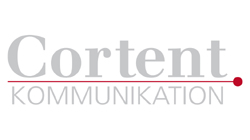
German SMEs seek strategy-oriented successors
Some 135,000 German SME entrepreneurs are on the lookout for worthwhile successors to carry on their businesses from 2018 on. The figure emerged from a survey conducted by the Institut für Mittelstandsforschung (IFM) in Bonn. According to Kreditanstalt für Wiederaufbau (KFW) who drew from a variety of databases, no fewer than 580,000 enterprises on the verge of a generation shift. Despite their disparity, the conclusions are all the same. German SMEs are working flat out to build sustainable conditions for succession.
The numbers are worrying and call for political action. The main session of a Europe-wide event dedicated to SMEs (7. Europäische KMU-Woche) held in Berlin at the beginning of July was devoted entirely to the question of succession within SME companies. Political interest in finding a solution stems mainly from the fact that a great many jobs are at stake. Iris Gleicke, government delegate for SME matters, and Secretary of State in the Ministry of the Economy and Energy has the numbers at her fingertips. Each year, some 400,000 jobs depend on the successful generational handover of the company that employs them.
Many entrepreneurs are beginning to wonder who’s going to take over running their business. Pensionable age is getting ever closer and there are no likely heirs in the family, which leaves one of two alternatives. Close down or sell out. The company may be bought out by a director or by a group of employees. More often, though, it falls into the hands of outside investors and one can understand the reluctance of an entrepreneur to see the company that he devoted his life to, broken up and sold piecemeal to investors out to make a quick kill.
The ideal solution would be a purchaser with strategy and perspicacity, an entrepreneur-investor not looking for a quick sale, but oriented towards company maintenance and growth along a path agreed on with the company management. People like this do exist, and one of them is the GESCO industrial group that has become specialized in the production of machines and tools, and in the technology of plastic materials.
GESCO AG sees itself as a specialist in questions of succession in SMEs, buttressing a functioning business model to extend and develop it. At the time of succession the specialist buys up 100 percent of the company equity, without, however, following an exit strategy. When the old entrepreneur is no longer involved, GESCO introduces a new management team that comes in with a quota of 10 to 20 percent vested interest and hence the same long-term vision as the parent company.
The disappointing results that Corporate Raiders lead to, are making politicians sit up and take interest in the matter. They see that succession within a company can only be seen as positive when jobs are secure long-term and, even better if more are created. The proposals put forward by the Federal Ministry of the Economy and Energy – including “nexxt-Initiative” and “nexxt-change” – are indeed useful but they don’t go far enough to cover the needs of SMEs in terms of information , practical support and adequate investment.
Buhlmann's Corner
Good conduct or responsibility?
 Or in today’s terminology, do I want compliance or do I want ethics?
Or in today’s terminology, do I want compliance or do I want ethics?
Of course you need rules otherwise traffic would be in permanent gridlock, nobody would get anywhere, and social and economic interaction would cease to exist . Sooner or later something happens and it gets recorded on a camera put there by the regulators. Broadly speaking, German legislation on joint stock companies introduced 6 September 1965 (Aktienrecht - BGBl I page 1185, in force from 01.01.1966) still holds good today. With no acknowledged responsibility, things can work for years as long as nobody starts asking questions. Insurance companies, pension funds and public sector expenditure all invest more in advertising than in responsible conduct.
A very unique case in point unfolded last month in Madrid during the AGM of Red Electrica when, after many years the company decided to change the structure of management – the Chairman and Chief Executive were no longer to be combined in one person for the following reasons:
“Red Electrica Board is a true believer in aligning the governance structure of the company with international best practices. Not only due to the fact that 69% of Red Electrica ownership is in the hands of foreign investors, but because the Board led by the chairman, is convinced of the benefits of having a well-tempered structure with proper checks and balances, especially in a complex regulatory environment“. This was the approach management adopted to explain the need for change to the shareholders whose approval was being sought.
Things work a bit differently in Volkswagen AG. There, we are witness to a minuet of posturing between the chairman of the executive board and his Supervisory Board counterpart. The former is obsessed with the idea of shifting from the position of CEO to being head of the Supervisory Board in one move and without going through the cooling-off period. Insofar as the issue doesn’t run counter to a policy of general legality, it can be said that here, responsible conduct would be to involve the shareholders in deciding how and when.
This all holds for M&As too. Despite the absence of any kind of official, let alone substantive offer on the part of Western Potash, K+S saw fit to send a letter to its shareholders asking them to hold off forming any kind of opinion regarding the situation or coming to any conclusions. But then the same envelope contained a questionnaire that the company invited the shareholders to fill in and, bypassing the recommendation agencies, express their opinion on the issue.
Canvassing in this fashion would be perfect for banks for getting their shareholders onboard. Two come to mind that are complete opposites, namely Banco Santander and Monte dei Paschi di Siena. Are you more interested in a cultural shift, or is banking with good and responsible conduct good enough for you?
Many people point to the divergence between the capital of the passives and the wealth of the actives, but they both have to be on the balance sheet, inseparably. Good conduct is for capital without which we wouldn’t get very far. Responsibility is, instead, how to make use of, take care of and enhance the capital.
On the subject of capital and good conduct, we saw, in 2009, that it doesn’t work to bundle worthless capital and sell it under another name. It was so all-pervasive that we talked endlessly, and mistakenly about “bank crisis”. When will we ever learn that outsourcing responsible conduct forges ever longer and obscure hierarchies of responsibility that in the end always trigger the same “something” that happens. So the question remains, how long before we identify it for what it is instead of looking the other way?
People
![]() Aurubis has announced that the company, presently in a phase of reorientation towards new goals and Frank Schneider the executive board member for the recycling/precious metals division and, have reached an agreement on the terms of the latter’s resignation. The MDax-listed group is cutting its business areas from three to two; Schneider’s will be incorporated into copper production and copper products.
Aurubis has announced that the company, presently in a phase of reorientation towards new goals and Frank Schneider the executive board member for the recycling/precious metals division and, have reached an agreement on the terms of the latter’s resignation. The MDax-listed group is cutting its business areas from three to two; Schneider’s will be incorporated into copper production and copper products.
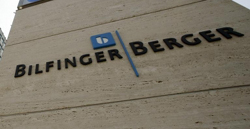 In the course of its meeting on July 21, Bilfinger’s Supervisory Board decided that a few weeks after the debut of new CEP Per Utnegaard two executive board members would have to go. A consensual agreement is being sought with Joachim Enenkel (power division) and PieterKoolen (industrial division). The executive board will be cut from five members to three.
In the course of its meeting on July 21, Bilfinger’s Supervisory Board decided that a few weeks after the debut of new CEP Per Utnegaard two executive board members would have to go. A consensual agreement is being sought with Joachim Enenkel (power division) and PieterKoolen (industrial division). The executive board will be cut from five members to three.
FUCHS Petrolub, the Mannheim-based lubricant manufacturer is setting the stage for a change in CFO. Alexander Selent, the executive board member for finance for the last 16 years and executive board vice chair is retiring at the end of the year. From 1 January, 2016, the new CFO will be Dagmar Steinert. Ms Steinert has been in charge of Investor Relations in FUCHS PETROLUB since 2013 and she will be the first lady CFO in the company’s eighty-year-long history. Furthermore, the executive board will gain one member more. With effect from 1 January 2016, Timo Reister will join the board as head of the Asia/Pacific basin and Africa. According to CEO Stefan Fuchs this area of the world is brimming over with potential that a company like Fuchs entrenched as it is in Europe and the USA cannot afford to ignore.
On July 14, the Duisburg tribunal appointed Prof. Tobias Kollmann to the Supervisory Board of Klöckner & Co, effective immediately. Prof Kollman, who lectures in E-business and E-entrepreneuship and has been full professor of company economics and computer economics at Wurzburg University for ten years, will take the place of the late Robert J. Koehler, who died on May 17 last. Kollman had been chair of the “Junge Digitale Wirtschaft”, the body who counselled the Federal Economics Minister on issues of information and communication economics.
Michael Andersen is set to become CFO of KRONES. Still CFO of Gea Heat Exchangers, Andersen will transfer directly to Krones effective January 2016. Pursuant to an agreement signed in March with his current employer, the name of the person who will replace Christoph Klenk CEO has not been released.
 After 51 years of service in MAN, Jochen Schumm is taking retirement and Josef Schelchshorn, currently head of human resources in Seat has been appointed to succeed him on July 1 as head of Human Resources of MAN Truck & Bus. Schelchshorn’s career began in 1979 in Audi. His predecessor, Schumm, by contrast, began his career in 1964 in Volkswagen where he trained as an industrial management assistant. He subsequently became executive board member with responsibility for Human Resources in Seat, a VW subsidiary. He joined MAN three years ago.
After 51 years of service in MAN, Jochen Schumm is taking retirement and Josef Schelchshorn, currently head of human resources in Seat has been appointed to succeed him on July 1 as head of Human Resources of MAN Truck & Bus. Schelchshorn’s career began in 1979 in Audi. His predecessor, Schumm, by contrast, began his career in 1964 in Volkswagen where he trained as an industrial management assistant. He subsequently became executive board member with responsibility for Human Resources in Seat, a VW subsidiary. He joined MAN three years ago.
Jenoptik: musical chairs in the Supervisory Boardroom
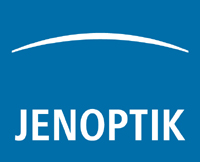 TecDax listed laser optical equipment specialist Jenoptik AG has a new Supervisory Board chair. Subsequent to the exit of ECE, the major Austrian shareholder, and, thence its two representative board members Rudolf and Christian Humer, two new candidates were proposed whose identity, however is still under wraps. In the meantime the board elected Maithias Wierlacher to the chair, effective immediately. A Supervisory Board member for three years, Wierlacher is also CEO of Thüringer Aufbaubank, and replaces Rudolf Humer who held the post for seven years.
TecDax listed laser optical equipment specialist Jenoptik AG has a new Supervisory Board chair. Subsequent to the exit of ECE, the major Austrian shareholder, and, thence its two representative board members Rudolf and Christian Humer, two new candidates were proposed whose identity, however is still under wraps. In the meantime the board elected Maithias Wierlacher to the chair, effective immediately. A Supervisory Board member for three years, Wierlacher is also CEO of Thüringer Aufbaubank, and replaces Rudolf Humer who held the post for seven years.
Zeal Network: new executive board
Zeal Network SE (formerly Tipp24) executive board chair Hans Cornehl, was not interested in extending his contract that expires at the end of 2015. Since the handover to his successor Helmut Becker is proceeding apace, the latter will take over the helm as early as September, and Cornehl will quit the SDax-listed company earlier than originally expected.
Over a period of 13 years, Cornehl has served on the executive board of the online lottery company, the latter as CEO. He piloted the former Tipp24 to listing on the stock market; Becker, his successor has been on the executive board of Zeal since 2013 as the board member for Marketing. Previously he had served as Chief Commercial Officer on the executive board of Xing AG after being appointed to a number of posts calling for leadership qualities in ebay Deutschland. His appointment to the Zeal executive board was preceded by a two-year stint in the company’s Supervisory Board.
United Power Technology: surprise exit
Oliver Juan, former CFO of the Chinese-owned United Power Technology, resigned his post and quit the company at the end of June, citing personal reasons. The Prime Standard-listed, German registered concern is officially on the market for a replacement. The company’s financial affairs are being handled in the interim by Financial Director, Zhong Jia Yang.
Heidelberger Druckmaschinen: an unexpected absence
The company will be led by CFO Dirk Kaliebe until CEO Gerold Linzbach gets over his ilness. Kaliebe will take the chair of the executive board and head human resources. Heidelberger Druck has considered the possibility that Linzburg’s recovery could take longer than originally expected. Finance Magazine is of the opinion that Linzbach could be back at work before the expiry of his contract in 2017. Kaliebe has served on the executive board since 2006.
Capital News
 Deutsche Annington Immobilien has finalised its increase in capital with the right of option, for 2.25 billion Euros. Shareholders purchased 105.5 million new shares at 20.90 Euros each prior to the expiry date of June 30. Germany’s largest real estate group announced that the option right quota was 98.1 percent. The approximately2 million shares left unsold will be put on the market. 1.9 billion Euros have been earmarked for financing the takeover of Südewodi Patrizia Immobilien. The remainder will be used to refinance collateralised loans and pay for transaction costs. Deutsche Annington Immobilien’s announcement of the Südewo takeover was made on June 14 .
Deutsche Annington Immobilien has finalised its increase in capital with the right of option, for 2.25 billion Euros. Shareholders purchased 105.5 million new shares at 20.90 Euros each prior to the expiry date of June 30. Germany’s largest real estate group announced that the option right quota was 98.1 percent. The approximately2 million shares left unsold will be put on the market. 1.9 billion Euros have been earmarked for financing the takeover of Südewodi Patrizia Immobilien. The remainder will be used to refinance collateralised loans and pay for transaction costs. Deutsche Annington Immobilien’s announcement of the Südewo takeover was made on June 14 .
Lotto24: new equity for two shareholders
By means of an increase in capital excluding all option rights, Lotto24 AG accrued some 7.7 million Euros in revenue. The Prime Standard-listed company placed I 2,195,899 shares at 3.49 Euros each with two shareholders, Othello Vier Beteiligungs Gesellschaft and Jens Schumann. The placement price was 10 percent higher than the average trading price of the three days preceding the transaction. Lotto24 has announced that the new equity will be eligible for trading from October onwards within the Prime Standard-listing of the Frankfurt bourse. The net revenue is earmarked for funding commercial growth.
Halloren: a new major investor in chocolate
Germany’s oldest chocolate manufacturer, Halloren Schokoladenfabrik AG, has increased its share capital by a transaction worth some 4 million Euros for the company that has been Entry Standard-listed since 2007. The 577,084 shares placed at 6.80 Euros each were all fully subscribed by Charlie Investors S.a.r.l. which brings its holding in the east German chocolate factory to 26 percent.
ADO Properties: more real estate being traded
The stock exchange flotation of real estate concern ADO Properties AG took place at the end of July. A subsidiary of Israeli owned ADO Group it has a portfolio containing some 14,000 apartments in Berlin. Approximately 23 million shares both extant and new were placed in a second phase of the operation at an issue price of 20 Euros each. Of the revenue, 200 million Euros – corresponding to 10 million new shares – from an increase in capital, will go directly into the coffers of the Prime Standard-listed concern. A maximum of 260 million will go to the parent company that for now intends maintaining a minimum quota of 35 percent. The company has earmarked the revenue for expanding its Berlin real estate portfolio and to continue growing.
M & A
Kontron: All -round service
Embedded Computer Technology (ECT), expert Kontron AG has acquired the entire share equity of its Indian subsidiary Kontron Technology India PvT. Ltd. Prime Standard-listed Kontron expects that this transaction will enable it to provide a better service to the 120 clients it has in the area. The transaction is part of the company’s development strategy for the Asia Pacific basin.
Tele Columbus: market status consolidated
Germany’s third largest cable network operator Tele Columbus has taken over its competitor Prima Con Holding GmbH. The price stated of 711 million Euros does not yet include cash reserves and liabilities. This transaction places 2.8 million homes within SDax-listed Tele Columbus’s network and confirms its market leadership as a cable network provider.
Prima Con, up to now the German market’s fourth-largest operator has its own optical fibre network that provides cable TV and telecommunication services. According to Tele Columbus, Prima Com’s turnover towards the end of last year amounted to approximately 132 million Euros.
Conclusion of the transaction is expected by end July, but the final approval by the monopolies commission is still pending. According to ”Handelsblatt, Tele Columbus will fund half of the transaction with the revenue from the stock market flotation in January and the other half by means of bank loans and a 125 million Euro bridge finance.
Nanogate: total control
Nanogate AG, the specialist in surface treatments and finishings has taken over the entire equity quota of its subsidiary company GfO AG. Nanogate, quoted on the Entry Standard list exercised its majority option on the remaining 25% quota. No information has been given regarding the price of the transaction. Nanogate is also enhancing its potential in inkjet treatment. Nanogate’s turnover and profit have vastly improved since it became involved with GfO in 2010.
SGL Carbon: costly divorce
 SGL Carvon SE has sold its American subsidiary, HITCO Carbon Composites Inc., at a loss. Hitco, a manufacturer of structural components for aircraft, was sold to Avcorp Industries of Canada, with the sole exception of the Material Solutions business. The 47 million dollars of the deal, made up of payments due to the Canadians, repayments of advance payments made by customers and the payment of various services to Avcorp, comes out at a loss. The American authorities still have to approve the transaction which is expected to reach completion by the end of October. SGL is expecting an outflow amounting to some 40 million Euros, most of which should mature at the moment of closing. SDax-listed SGL, does however stand by its forecast for 2015 and a net increase in Ebit and Ebitda.
SGL Carvon SE has sold its American subsidiary, HITCO Carbon Composites Inc., at a loss. Hitco, a manufacturer of structural components for aircraft, was sold to Avcorp Industries of Canada, with the sole exception of the Material Solutions business. The 47 million dollars of the deal, made up of payments due to the Canadians, repayments of advance payments made by customers and the payment of various services to Avcorp, comes out at a loss. The American authorities still have to approve the transaction which is expected to reach completion by the end of October. SGL is expecting an outflow amounting to some 40 million Euros, most of which should mature at the moment of closing. SDax-listed SGL, does however stand by its forecast for 2015 and a net increase in Ebit and Ebitda.















